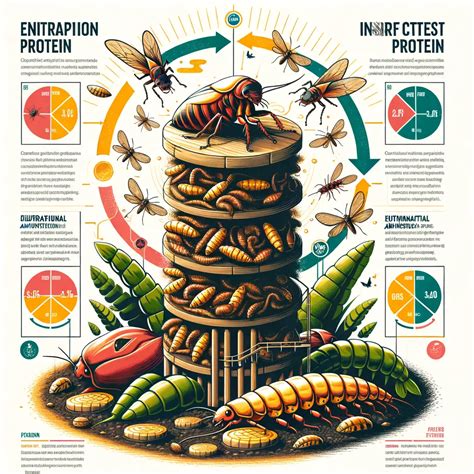The Growing Demand
The global demand for protein is soaring, and traditional animal farming is struggling to keep up. As a result, insect farming is emerging as a sustainable and efficient alternative protein source. By 2025, the insect farming market is projected to reach $8 billion. However, there are still some challenges that the industry needs to overcome.

Challenges
-
Consumer Acceptance: Many consumers are hesitant to eat insects, due to cultural factors and perceived “ick” factor.
-
Production Costs: Scaling up insect farming to meet the growing demand requires significant investment in technology and infrastructure.
-
Regulatory Barriers: Regulations vary widely across countries, which can hinder the industry’s growth.
Marketing Strategies
Despite these challenges, the insect farming industry is poised for growth. Here are some effective marketing strategies:
-
Education and Awareness: Educate consumers about the nutritional benefits and sustainability of insect farming.
-
Product Differentiation: Highlight the unique properties of insect-based foods, such as their high protein content and environmental friendliness.
-
Value-Added Processing: Transform insect biomass into value-added products like protein powders, snacks, and cosmetics.
Pros and Cons
Pros:
- High protein content
- Sustainable and efficient
- Low environmental impact
Cons:
- Consumer acceptance
- Production costs
- Regulatory barriers
Highlights and Differentiation
- Sustainability: Insect farming uses significantly less land, water, and energy than traditional animal farming.
- Nutritional Value: Insects are a rich source of protein, vitamins, minerals, and essential fatty acids.
- Endless Possibilities: Insect biomass can be transformed into a wide range of products, from food to pet food to bioplastics.
Conclusion
Insect farming has the potential to revolutionize the food industry and contribute to a more sustainable future. By addressing the challenges and implementing effective marketing strategies, the industry can overcome barriers and capture this growing market opportunity.





















